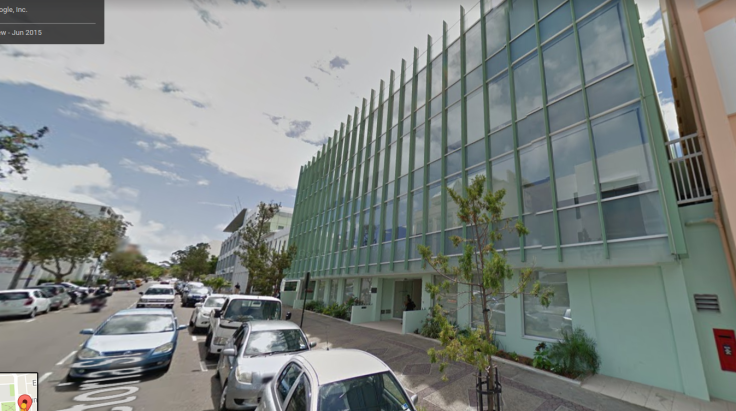Paradise Papers: UK government can no longer shelter tax havens for global elite
Green MEP Molly Scott Cato demands public register of beneficial ownership.

Panama, the British Virgin Islands, Bermuda: as we continue our tour of palm-fringed islands there is a growing sense of deja-vu. The names in the exposés may vary, and the Queen is a particularly sad revelation, but is anything actually changing?
The Paradise Papers offer yet another disturbing glimpse into the murky world of offshore finance, used by wealthy individuals and big business for tax avoidance. At the centre of the latest leak is Appleby, a firm that styles itself as "one of the world's leading offshore law firms", with outposts in Bermuda, the Cayman Islands, the British Virgin Islands, the Isle of Man, Jersey and Guernsey. Again, there will be plenty of analysis and commentary supported by a host of graphics and statistics to explain the various tactics. But a fundamental question remains: why are the wealthy still getting away with this?
For 30 years we have seen the spread of globalisation fuelled by financial liberalisation: a tiny elite has benefited from this period of unparalleled growth in global inequality. While there has much focus on controlling borders and preventing people crossing international frontiers through passport controls, finance has been able to move freely with only minimal controls.
I have sat on three consecutive inquiry committees into tax avoidance as a member of the European Parliament. These were launched in response to a series of data provided by whistleblowers and leaks beginning with Luxembourg – the LuxLeaks scandal – moving on through the Panama Papers and Bahamas Leaks. Greens in the European Parliament have long insisted and made recommendations on tackling tax avoidance, evasion and money laundering.
What has become clear, as we have moved from one scandal to the next, is the way in which the UK and its offshore territories are so often at the heart of the dodgy practices employed to help the wealthy avoid paying their fair share of tax.
The report of the Panama Papers inquiry has already come up with concrete policy proposals that could help to prevent the kind of activity revealed in the Paradise Papers. That another major leak has emerged before we have even completed our work on the last one shows the scale of the problem we face.
Central to our demands is a public register of beneficial ownership, meaning that we can all know who is ultimately the real person behind companies and trusts; this sort of trust is the bread-and-butter of companies like Appleby. We are also insisting that trusts should be registered in the member state where the trust is created, administered or operated in order to avoid trusts being misused for tax evasion or money laundering. We also want to see the imposition of a withholding tax when the money leaves the EU and is destined for somewhere it is not going to be taxed.
The EU institutions control considerable flows of funding, including for contracts, legal and accountancy services, and even agricultural payments. We are proposing that any company which has a subsidiary in a country that is on an EU blacklist – a list currently being developed – should no longer be eligible to receive these funds.
While the Panama Papers revelations were more about money laundering and how banks facilitate this, the Paradise Papers reveal that intermediaries such as legal firms and accountants are at the heart of the tax avoidance business. They exploit loopholes to stay in the 'grey zone' between legal and illegal. We believe lawyers acting as tax advisers should not be covered by client privilege, which allows some of them to cover up illegal practices or violate the spirit of law. Lawyers in these cases should be held legally co-responsible when designing tax schemes that are ultimately shown to be illegal.
It is clear that we cannot tackle tax avoidance in one country and we need cooperation at European and global levels to ensure we resist the pressure for a race to the bottom on tax rules. Sadly, the British government has blocked key tax reforms at EU level, particularly those regarding the transparency of trusts. The trust has long been the favourite tax avoidance measure of the British upper class and was central to the revelations in the Paradise Papers. In a similar vein, the UK is blocking the inclusion on the EU blacklist of tax havens of the Overseas Territories with zero corporate tax rates where their favourite trusts are registered.
Finally, we need a permanent inquiry committee, along the lines of those already seen in the US Congress, to enable the European Parliament to react quickly to future reports of tax avoidance, evasion and money laundering.
The sense that a tiny class of plutocrats are above the law is eroding the foundations of our democracy. The demand for greater transparency about capital flows is not coming from a radical anti-capitalist position, but rather from the position of those who believe democracy is worth saving; if democratic politicians cannot be seen to be acting against global elite in the interests of the majority then our political system is at risk.
The government must use the powers at its disposal to force British Overseas Territories and Crown Dependencies to introduce central public registers of company ownership and so end their tax secrecy. For the UK to have a positive future trading relationship with the EU, and the rest of the world, it is going to have to clean up its act when it comes to tax.
Molly Scott Cato is the Green MEP for South West England and Gibraltar, Twitter: @MollyMEP






















